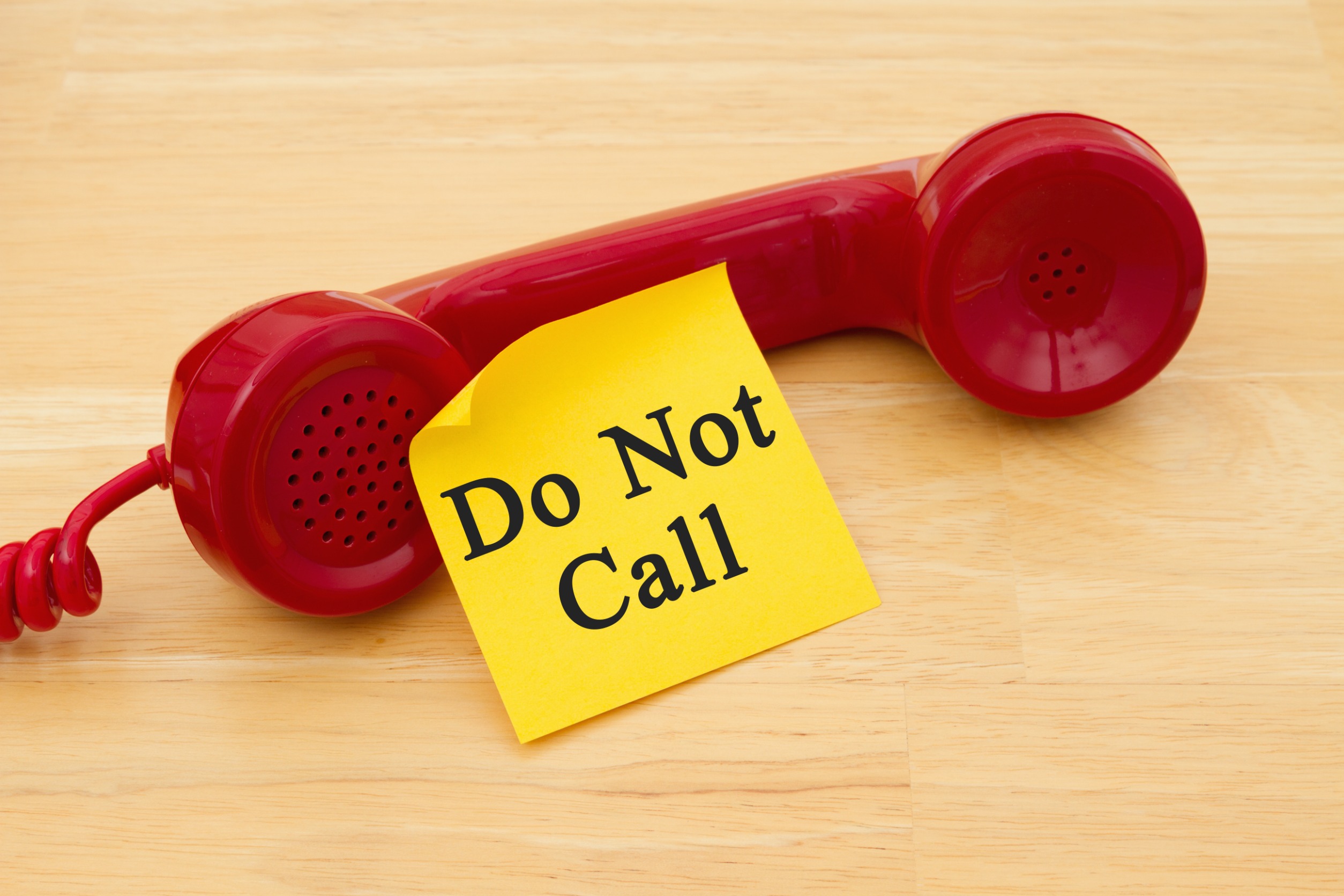The National Do Not Call Registry is a list of phone numbers from consumers who have indicated that they do not want to receive telemarketing calls. This is managed by the Federal Trade Commission (FTC).
A seller or telemarketer CANNOT call a person who is on the Do Not Call List, unless one of the following exceptions applies:
- Consumer Inquiry Exception: You may call a person for a period of 3 months after the person makes a “consumer inquiry.” If a consumer makes an inquiry or submits an application to a company, the company can call for three months. However, if the consumer makes a specific request to that company not to call, the company may not call,
- Prior Transaction Exception: You may call a person who has had a financial transaction with your business within the prior 18 months. A company with which a consumer has an established business relationship may call for up to 18 months after the consumer’s last purchase or last delivery, or last payment. However, if the consumer makes a specific request to that company not to call, the company may not call. Additionally, if the consumer asks the company not to call again.
- Express Permission Exception: Sellers are allowed to call a consumer who has given his or her express agreement, in writing, to receive calls from a specific party, even if the consumer’s number is in the National Do Not Call Registry. Permission must be in writing and include: (1) the Person’s name, (2) Signature and (3) Telephone number. Express written permission exception does not have a specific time limit. A seller may not require a consumer to give consent to receive prerecorded calls
- Family, Friends and Acquaintances Exception: You can always call family and friends. Unless they tell you not to.
In any case, YOU MAY NEVER:
- Call persons outside the hours of 8 AM to 9 PM.
- Make pre-recorded calls of any kind.
- Clone voices with A.I. for robocalls. The Federal Communications Commission (FCC) has issued a declaration that the use of voice-cloning technology in robocalls is ILLEGAL. The FCC’s ruling, effective immediately, is made pursuant to the Telephone Consumer Protection Act (TCPA), a 1991 law restricting calls that use artificial or prerecorded messages. Damages under TCPA range from $500 per violation (i.e. individual call), up to $1,500 if willful.
The fine for violating the do not call list is up to $16,000 per call. And if you call following a denial by the person, you may be subject to a fine of up to $51,744.
When it comes to real estate listings, For Sale by Owner (FSBO) and Expired Listings, you may not call a person who has advertised his property as FSBO or whose listing with another realtor has expired if:
- the person’s telephone number is on the National Do-Not-Call Registry and
- the purpose of your call is to offer to list the homeowner’s property.
You may call a person who has listed his property as FSBO if you represent a purchaser who is interested in purchasing the property. When you make a call, at the beginning of the conversation, you must give the person called your name and tell them you are calling from [name of your business]. If you are calling in response to an inquiry from the person called, you should make reference to the person’s inquiry in your introduction.
If you have questions about your marketing or sales policies and procedures, please feel free to reach out to us.
Information provided for educational purposes, not legal advice*


